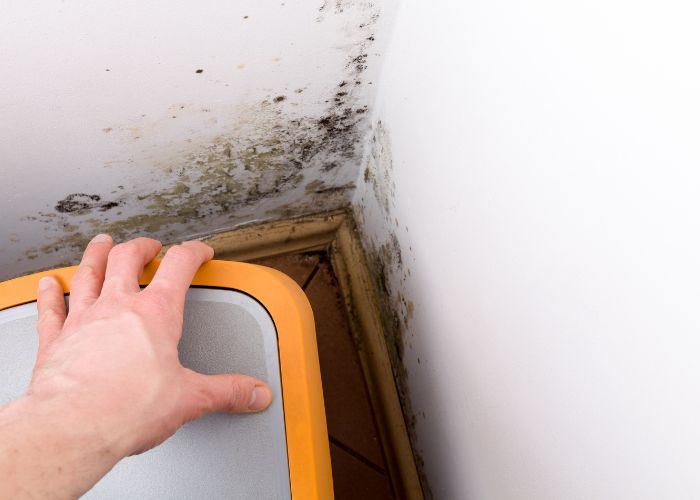MADRID – One in four people in Spain rents a home and that share continues to grow. The percentage of homeowners has fallen from 80% to 75% in the last ten years. But with an increasing number of people renting a home, so are rental issues.
This is reported by broadcaster Cadena SER, which has shown a number of practical examples in the program ‘Código de Barras’. Threats, sudden rent increases and deposits paid that tenants never see again: the phenomenon of mobbing is on the rise in this sector. Landlords or intermediaries exploit the economically vulnerable circumstances of tenants, inflation and the shortage of housing.
“Given the situation in Spain with the shortage of suitable rental properties, landlords demand much more from their tenants than what they can demand through the law,” lawyer Estanislao Moreno told Cadena SER.
An overnight rent increase of a few hundred euros or demands that a tenant pay for major repairs, tenants do not have to accept just like that. Moreno assures Cadena SER that: “We have a lot of legal guarantees against this kind of thing.” Some examples of ‘mobbing’ that Cadena SER mentions:
Rent increase of 400 euros
In a building with 42 rental properties in Madrid, tenants were informed by buro fax that the company owning the property was going to increase their rent by €400 per month, plus the cost of the gas boiler. Many of the tenants cannot afford this and are forced to leave. The message has led to a lot of fear and stress among the tenants who have no idea where they can go so quickly.
Lost deposit
Laura has not received back from her landlady the deposit she paid for the house she rented for two years. Despite leaving it in perfect condition. That will cost her €1,100, she said in the radio program on Sunday.
Illegal rent increase
Esteban, from Madrid, has had to confront his landlord because he wanted to increase the rent by 6.8%, while the increase should only be a maximum of 2%. Furthermore, the landlord had not informed him before the renewal of the contract. However, Esteban was lucky, the landlord did not follow through with his plan, but wants to “talk next year”.
Threats
Other homeowners threaten tenants, as was the case with Ismael. His landlord wanted to raise the rent by 8.9%. When Ismael responded that the increase could be a maximum of 2%, the landlord threatened to rent his home to a family member in that case. Moreover that is a valid reason to be able to evict a tenant.
Related post: Rental prices in Spain will continue to rise in 2023
The lawyer explains that the latest amendment to the Rental Act stipulates that if a homeowner wants to have the option of renting out his home to a family member, this must be explicitly stated in the rental contract. This contract must be signed by the lessor and the lessee. It is not allowed without that provision in the contract. “It’s a common practice that we don’t have to accept,” Moreno concludes.
Threaten to turn off the heating
Juan’s landlord from Madrid wants to raise the rent, but Juan can’t afford it. Now the owner threatens to turn on the heating for only one hour a day. “The law requires that the owner rents out the house in habitable conditions. The temperature of the house is a basic good in that respect. Therefore, the landlord cannot force a tenant to do anything by damaging his stay in the house,” said the lawyer.
Examples of mobbing
What are acts that are considered real estate mobbing?
- Limiting or shutting off utilities, such as water, electricity, gas, etc
- Ignoring requests from the tenant regarding the maintenance of the property (moisture treatment, repairs, painting)
- Asking for amounts of money that are not stated in the rental agreement
- Cheating or verbal harassment
- Psychological pressure
- Not wanting to collect the rent to create a default situation
- Rent increase without prior notice and without amendment of the contract
- Banning works that improve the accessibility of the home.
What can you do as a tenant?
If you are confronted with a mobbing practice as a tenant, the best option – provided you have an official rental contract – is to send a formal written request (e.g. buro fax) to the landlord to stop the bullying and to provide the optimal to guarantee habitability conditions that existed at the time the lease was signed. In case the landlord ignores the request, you could take legal action.
Lawyer
If a formal request for resolution fails or is ignored, you may want to hire a lawyer to provide evidence of the harassment and uninhabitability of the home as a result of the practices. It is better not to stop paying the rent, but if you have engaged a real estate lawyer, you can pay the rent at the court or the notary. Moreover, this will serve as evidence later.
Collect evidence
In addition, it is recommended to collect as many testimonials and evidence from experts, contracts, receipts, visual evidence, tax payments, etc. as possible. You can also report the illegal practices to the competent municipal council and start the corresponding disciplinary procedure.
Related post: Where are the millions of empty apartments in Spain?


